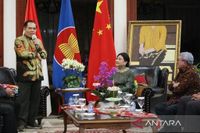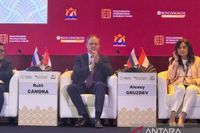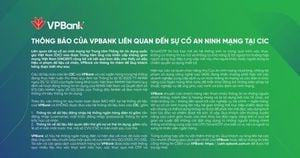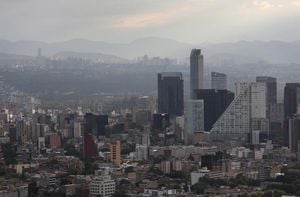On April 14, 2025, Deputy Minister of Industry and Trade of Russia, Alexey Gruzdev, addressed the Russia-Indonesia Business Forum held in Jakarta, emphasizing Russia's commitment to enhancing bilateral cooperation with Indonesia. Gruzdev stated, "In many sectors, we have achieved significant milestones in recent years, and we are ready to use all of this as a foundation for our bilateral cooperation with Indonesia." This statement highlights the growing relationship between the two nations, particularly in trade and investment.
Despite the potential for growth, Gruzdev noted that the current trade between Indonesia and Russia is not very diverse. Russia primarily exports fuel and energy commodities, such as coal and oil, to Indonesia. Conversely, Indonesia's exports to Russia largely consist of agro-industrial products, including palm oil, coconut oil, butter, and cocoa. Remarkably, over 90% of the palm oil supplied to Russia comes from Indonesia, making it a critical component of their trade relations.
Gruzdev expressed Russia's serious interest in supplying pharmaceutical products to the Indonesian market. He mentioned various areas of potential collaboration, including medications for oncology, autoimmune diseases, rare diseases, insulin, and vaccines. He stated, "We can talk about drugs for oncology, autoimmune diseases, rare diseases, the entire group of insulin, and various kinds of vaccines." This interest in pharmaceuticals indicates a desire to expand the scope of trade beyond traditional commodities.
Furthermore, Gruzdev identified opportunities for cooperation in tourism and passenger ship manufacturing. He also discussed Russia's capabilities in nuclear energy, stating, "Russia is one of the leaders in this industry." He acknowledged Indonesia's plans to develop nuclear energy and offered assistance in constructing nuclear power plants and providing non-energy applications of nuclear technology, such as nuclear medicine and radioisotope provision. "Our nuclear industry can offer all of this," he added, showcasing Russia's technological advancements.
In addition to nuclear technology, Russia is exploring options to establish a network of correspondents and develop new cargo shipping routes. Gruzdev noted that Russian logistics companies are keen to launch new routes, including the development of port infrastructure containers. This initiative could significantly enhance the efficiency of trade between the two countries.
Moreover, Russia is eager to share its advancements in information technology and digital solutions with Indonesia. Gruzdev highlighted the potential for collaboration in industrial software, navigation systems, cartography, and independent internet searching, stating, "We are happy to offer all of this to the Indonesian market." This aspect of the partnership could lead to significant improvements in Indonesia's technological landscape.
On the diplomatic front, the significance of Indonesia's relationship with China was also underscored recently. On April 13, 2025, Indonesian Ambassador to China and Mongolia, Djauhari Oratmangun, celebrated the 75th anniversary of diplomatic relations between Indonesia and China. He remarked, "Today we celebrate 75 years of diplomatic relations between Indonesia and China. Both presidents have congratulated each other on this milestone, and the trade and investment figures reflect the significance of our relationship."
The partnership between Indonesia and China has evolved significantly since its inception on April 13, 1950, when China was under the leadership of Mao Zedong. Indonesia was one of the first Southeast Asian countries to recognize China diplomatically. Over the decades, the two nations have recorded increasing trade transactions, with the value reaching $147.78 billion in 2024, according to China Customs data.
In 2024, Indonesia's exports to China amounted to $71.09 billion, while imports from China were recorded at $76.69 billion, making China Indonesia's largest trading partner, surpassing the United States and Japan. Additionally, China emerged as the third-largest investor in Indonesia, with direct investments totaling $8.1 billion, reflecting a 9.4% increase from the previous year.
Ambassador Oratmangun avoided using the term "trade war" regarding ongoing trade tensions between China and the United States, preferring to describe it as "trade friction" to prevent adding to the existing turmoil. He emphasized that Indonesia maintains good relations with both nations, highlighting the diplomatic balancing act the country is undertaking.
Looking ahead, a 2+2 ministerial meeting, which will involve both the foreign and defense ministers of Indonesia and China, is scheduled for the end of April 2025. This meeting is expected to further solidify the strategic partnership between the two countries.
The historical context of Indonesia-China relations is notable, as both countries were initiators of the Asia-Africa Conference in 1955, attended by 29 non-aligned nations. However, diplomatic ties were severed after the 1965 G-30 S PKI coup attempt, resulting in informal relations until they were restored on August 8, 1990. Since then, Indonesia has recognized the "One China" principle, acknowledging the People's Republic of China as the sole representative of China.
Under President Joko Widodo's administration, Indonesia has actively participated in China's "Belt and Road Initiative," which has led to significant infrastructure projects, including the Jakarta-Bandung High-Speed Rail. This collaboration has further deepened economic ties and showcased Indonesia's strategic role in the region.
As both Russia and China seek to strengthen their relationships with Indonesia, the Southeast Asian nation finds itself at the crossroads of major geopolitical dynamics, balancing its partnerships while fostering economic growth and technological advancement.





